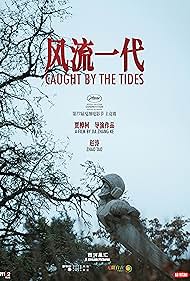A Chinese woman lives quietly by herself, celebrating the blossoming Belle Epoque with song and dance. The female lead doesn’t have a single line of dialogue in the entire film. What I like about Jia Zhangke is that his works of Chinese cinema are highly interesting and so different from other filmmakers in China. In many ways, he uses strange approaches with the digital camera, approaches to themes, music, characters and setting. This film feels like a statement of his career, in a documentary and fictional way, it is a fascinating experience. Using archival footage and a mix of non-linear fiction and non-fiction, Zhangke presents a melancholic and avant-garde narrative and atmosphere full of wonderful portrayals and themes dealt with. The characters, portrayals, music and dialogues seem realistic and almost like observing the daily life of an individual and the nature of people. Zhao Tao continues to shine with her natural portrayal and language in every scene she appears in. The soundtrack choice is interesting and while the whole fiction vs. non-fiction scenario will put off many viewers, I found it interesting and a great experiment of a story. I don’t recommend this as a first film from Jia Zhangke, but I will say it is great.




 28/41
28/41
Leave a Reply